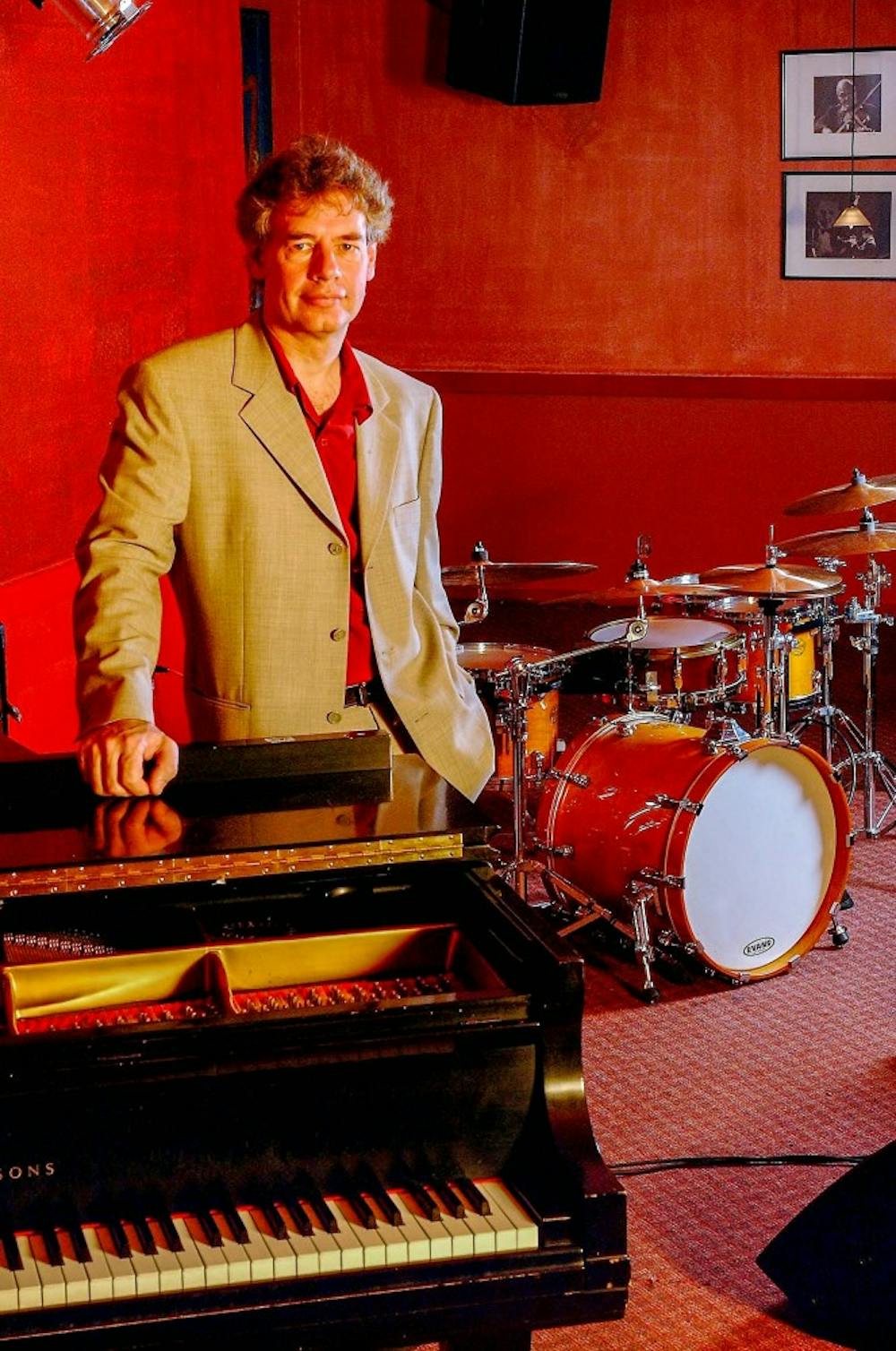From behind the kit to the lecture podium, Bill Bruford’s passion for music hasn’t waned.
The Rock and Roll Hall of Fame inductee played in rock groups Yes and King Crimson, and a stint as the touring drummer for Genesis. Forty years on, Bruford is enjoying his freedom in retirement and newfound prowess for music in a different light.
Only this time, he goes by Dr. Bruford.
The Spectrum sat down with Bruford following the release of his second book, “Uncharted: Creativity and the Expert Drummer.”
Q: “Uncharted” is your second published work after receiving a doctorate from the University of Surrey. What was your ambition behind this work?
A: Well, that’s a really good question. It works on several levels, really. The best way to start on a doctorate is with a question that I couldn’t really find an answer to. It was a personal question: Why did I stop playing drums? We’ll come back to that. That question brought me back to a much more interesting area of creativity and the drummer. The university accepted that I was interested in that area. Creativity and popular music performance is not really much discussed. Why people do things and why they do certain things on a musical instrument is an eternal fascination of mind. It started with why I did certain things, but much more interestingly, why do broad groups of people do certain things and can we say something about drummers as a group that do things in a particular way. I think they do, and I’ve stated that case and interviewed some top dudes. Access is key in these things. If you want to do something on presidents of the United States, then it’s great if you’ve got access to a dozen ex-presidents. I was lucky enough to have access to some top guys, which gave the research more of an unusual side to it.
Q: You’re an inductee of the Rock and Roll Hall of Fame as a member of Yes. Do you see the recognition as something to marvel at or just something unimportant?
A: Somewhere between the two. One is flattered and one is honored. On the other hand, none of my music-making has ever been made with any kind of aim in mind other than the success of the music itself. In other words, I’ve never really designed anything for a hit record. I’ve never designed anything for record company approval or for anybody's approval other than me and my colleagues. People would always say, “Yes is so un-commercial!” I would never understand what they meant by that as the record sales went through the roof. What are you talking about when it comes to commercial and un-commercial?
Q: Retiring from performing in 2009, are you finding happiness in your current endeavors?
A: I’ve always found happiness with what I’m doing. There are just bigger and smaller question marks over the whole thing all the time. I don’t mind life being a series of questions. Toward the end of my playing career, I’d lost the desire to play. I was interested in why that might’ve been the case. Eventually, I decided I couldn’t hear what came next in the music. By that, I don’t mean the next bar or the next phrase. What is the bigger picture of how drummers fit into things? What are drummers worth? Will we still be having drummers in 10 or 20 years’ time? All these questions fed into my book –– all in the investigation of how and what it’s like to be a drummer with a strong accent on creativity. … Drummers come with a negative cultural psychology, which says that we don’t associate them with creativity, which is a big mistake because drummers think they’re intensely creative. They have a huge amount of influence and power in the music. Percussion these days is everywhere –– accompanied and unaccompanied. ... Percussion is everywhere, and kit drumming of course with it. We expect too little of drummers, and they perform to a low standard of expectation and become bored and irritated, because they could do so much more if you wanted them too.
Q: What goals do you have for yourself going forward?
A: Well, that’s a good question. Right now, I haven’t the slightest idea. And that’s lovely because I think, probably for the last 50 years, I’ve always had an idea. I’m perfectly happy not having idea and seeing what happens. Stuff happens, you put stuff out there. Sometimes, you need to wait a little bit for some feedback. Last year, I just did a big box set from my band from the 1980s, which was an exhausting project but a fantastic project to do, [which I] followed with a book. That’s a lot of stuff for people to absorb, and I’m thinking slowly about what I might do next. I can continue in academia if I want. I’m not an affiliated scholar. I don’t have a job at a university. That’s OK with me. I’m free to do what I want, and I’ll just wait for a bit. I’ll put my feet up on the desk and do as little as possible.
Brian Evans is the senior arts editor and can be reached at brian.evans@ubspectrum.com or @BrianEvansSpec.
Brian Evans is a senior English major and The Spectrum's senior arts editor.






